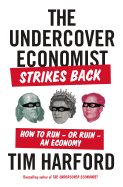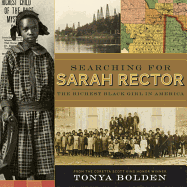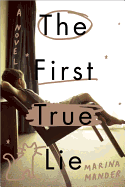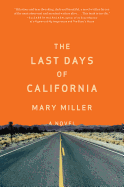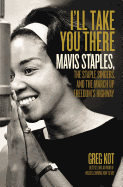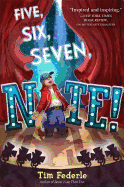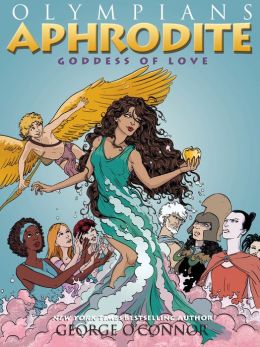"We must have a pie. Stress cannot exist in the presence of a pie."
--David Mamet, Boston Marriage
I heard recently that pie was poised to become the new cupcake; for many of us, pie has always been the new cupcake. When I was a child, I used to see semis on the highway with the logo "P.I.E." I didn't know it stood for Pacific Intermountain Express; I thought the cargo was pie, and dreamed about truckers unloading pies at cafes along the highway: blackberry, cherry or my grandfather's favorite, apple.
"Good apple pies are a considerable part of our domestic happiness" --Jane Austen
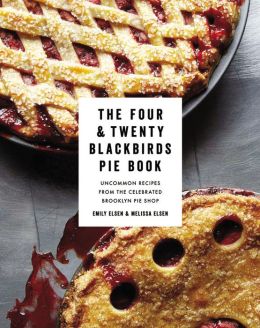
Their fervor for the book is not hyperbolic promo: these people know pie. Jimmy Franco, the director of publicity, met his wife when they were the only pie entrants in an employee bake-off in 1994. Elizabeth made a pecan pie using pecans from her grandfather's childhood home and Jimmy baked an apple pie with local supermarket apples. Bobby Flay was the judge and Jimmy's pie won the contest, but even better, he won Elizabeth's heart. Now that's a pie story. You can create your own pie story with The Four and Twenty Blackbirds Pie Book: Junipear Pie with pears and juniper berries, Black Bottom Lemon Pie, Peaches and Cream Pie, Apple Rose pie with rose water and bitters. National Pie Day was officially yesterday, but we celebrate pie everyday.
"You like pie? I like pie." --Barack Obama
--Marilyn Dahl, editor, Shelf Awareness for Readers
Orfeo
by Richard Powers
While Richard Powers's stories are often complex (The Gold Bug Variations, for example, weaves Bach's music, the science of DNA and Poe's "The Gold Bug" into a love story spanning decades), their very human characters and settings push his encyclopedic knowledge into the background.
One of his more accessible and satisfying novels, Orfeo is the story of Peter Els, a divorced composer, retired professor and amateur chemist. Els is a 20th-century Orpheus on his own journey through a modern American Hades, seeking not only to reconnect with his former wife and estranged daughter, but also to create an eternal score of the music of the universe.
Orfeo begins with Els tinkering in a home lab trying to embed his last unwritten score into modified DNA strands where it can replicate forever. When he mistakenly calls 911 after his dog suffers a heart attack, the responding officers discover a disconcerted professor with a house full of strange chemistry books and Petri dishes of bacteria, and his perceived threat level immediately rises. As he flees to a friend's remote summer cabin, Homeland Security's pursuit of the "Bioterrorist Bach" goes viral.
Full of Powers's explication of the history and technical nuances of music, Orfeo is also the story of a "naïve and misguided" man's life. In a virtuoso performance, Powers roams as easily through modern technology as he does through arcane opera. His language, humor and sheer exuberance make this modern tale of Orpheus as fresh as the latest Al Jazeera cellphone video. With Powers's history of winning awards, it would be no surprise to see Orfeo on the 2014 National Book Award shortlist. It's a stunning novel. --Bruce Jacobs
Discover: Richard Powers brilliantly portrays a retired composer on the run from Homeland Security, confronting his past as he creates his last musical score.
The First True Lie
by Marina Mander
A slim and unusual novel from Italy, The First True Lie is the story of a young boy who conceals the death of his mother for as long as he can.
Luca lives with his mother and their cat, Blue. She is an attractive and artistic woman, always dating the wrong men. The toll of being a single mother is wearing on her--she is on the brink of collapse. The depth of her devastation is something the adult reader can understand better than Luca. Despite lacking the intellectual framework in which to grasp his mother's situation, Luca does know it intuitively.
Luca is exceptionally bright. When tragedy strikes, Luca's intelligence both aids and paralyzes him. After returning home from school to find his mother dead in her bed--ostensibly from a sleeping pill overdose--Luca is immediately seized with the terrified thought of being placed in an institution for orphan children. For the remainder of the novel, while Luca pretends that everything is normal, the chill of his new status in life creeps into the text in increasing degrees. More than anything else, The First True Lie is defined by its pervasive atmosphere of isolation, offset by Luca's vivid daydreams and the imaginary games he plays in which Blue is his personal assistant who can talk.
Luca is forced to confront who he is. To get there, he journeys through many fantasies and daydreams, all of which contain the yearning for a different reality. But in the end, reality can't be shut out forever. --Ilana Teitelbaum, book reviewer at the Huffington Post
Discover: A slight novel about a young boy concealing the death of his mother--isolated, terrified, facing a reality he longs to change.
The Days of Anna Madrigal
by Armistead Maupin
Armistead Maupin's Tales of the City novels began as a serial in the San Francisco Chronicle in the 1970s. The Days of Anna Madrigal, the ninth book in the series, may truly be its finale, yet it's as good a place to start as any of its predecessors.
Maupin's core group of characters--Michael, Mary Ann, Brian and their landlady Anna Madrigal--left their apartments on San Francisco's Russian Hill long ago, but they've remained connected as what Anna describes as a "logical" (as opposed to biological) family. Biology, however, is staking a claim on Mrs. Madrigal now. Having surprised nearly everyone, including herself, by making it to the age of 92, she's begun to feel an urgent need to deal with loose ends. The entire family will soon be off to the Nevada desert for a week at Burning Man, and the trip offers Anna the opportunity for a detour to Winnemucca, Nev., and a visit to her past.
While much of The Days of Anna Madrigal explores Anna's Depression-era youth, the novel is firmly set in the present. Maupin strikes a good balance with just enough background to clarify the story for newcomers while rewarding longtime readers with new insights into characters they know and love. If The Days of Anna Madrigal really is the last of the Tales of the City, the ending offers readers old and new the chance to revisit it all from the very beginning. --Florinda Pendley Vasquez, blogger at The 3 R's Blog: Reading, 'Riting, and Randomness
Discover: The unfinished business of Anna Madrigal's former life in the ninth (and perhaps final) installment of Armistead Maupin's Tales of the City.
The Last Days of California
by Mary Miller
Fifteen-year-old Jess narrates her family's Rapture-bound cross-country road trip in Mary Miller's debut novel, The Last Days of California. Intentions aside, Jess's father's quest to guarantee his family's place among the last people in the continental United States to witness the second coming hunkers well below the sublime. Jess and her 17-year-old sister, Elise, are distracted by the immediate gratifications of cell phones, junk food, motel television and the teenage boys who flock to Elise in her "King Jesus Returns!" T-shirt and short-shorts. Although the family's dedication to converting the heathen wavers, and their discussions focus on roadside dining options and religious doctrine with equal fervor, the humor in The Last Days of California arises not from mockery of belief but from Jess's unfiltered assessment of earthly behavior.
Simultaneously overwhelmed and fascinated by her big sister's sexual magnetism, and uninspired by her mother's nearly catatonic blandness, Jess continually weighs her father's pious fatalism against Elise's profane teenage priorities. Every stop on the road provides Jess with more data on the state of her family and human nature. Essentially episodic, the question driving The Last Days of California is whether Jess will fulfill the exaltation of the "promise ring" her father gave her, or succumb to the more prosaic bliss (and perils) of unsaved adolescent America. --Holloway McCandless, blogger at Litagogo: A Guide to Free Literary Podcasts
Discover: A road trip novel in which 15-year-old Jess veers between her father's faith and her sister's secularity.
The Apartment
by Greg Baxter
Greg Baxter adds a layer of meteorological and existential permafrost to The Apartment, a short novel of 21st-century expat anomie. Baxter refrains from naming the narrator or the exact location of his self-assigned exile, but the city (possibly Germanic) is undeniably cold, austere and politically inhospitable to an American whose bearing reveals his military service and whose wallet contains the spoils of a lucrative post-discharge stint as a contractor in Iraq. If it weren't for the graciousness of his simple hoteliers, and the cheerful guidance of Saskia, the philosophically inclined young woman who takes him on as a project, our narrator would be in danger of being frozen out.
The Apartment adheres to the narrator's immediate sensory perceptions interspersed with flashbacks from Iraq and home. The plot, such as it is, examines the byplay between Saskia and the narrator as they collaborate on his apartment search (hence the title). Is Saskia donating her weekend to the lonely American's quest for expatriate shelter because she cares for him, or is she feeding off the vicarious thrill of viewing expensive, centrally located apartments she could never afford? Their relationship may be a metaphor for the U.S.'s post-Iraq reputation abroad, but the writing focuses most tightly on the narrator's struggle to "embalm" his morally arid past inside the esthetic details of her icy city. --Holloway McCandless, blogger at Litagogo: A Guide to Free Literary Podcasts
Discover: A stream-of-consciousness novel about an Iraq War veteran who seeks shelter and forgetting in a coldly beautiful European city.
The Secret of Magic
by Deborah Johnson
Deborah Johnson casts a spell over readers with her second novel, the intricately layered mystery The Secret of Magic. Regina Robichard, an attorney working with the NAACP in 1946, has plenty of experience with discrimination, but when her supervisor, Thurgood Marshall, sends her to Mississippi to investigate the death of a black soldier during his bus ride home, she finds a depth of prejudice she never dreamed possible.
Regina encounters a town that knows about the young lieutenant's murder but turns a blind eye; a father who aches for justice; and the author of her favorite childhood novel, a fading Southern belle whose family's involvement with the victim's family stretches back over a century. Regina must navigate the politics and dangers of a South where blacks and whites live in more physical proximity yet under more enforced segregation than the North, a place where a war hero can be slain for the color of his skin. Even Miss Mary, the author, whose novel is banned in the South for its depiction of interracial childhood friendships, turns out to be more complex and biased than Regina could have imagined. Miss Mary's past, especially her curious debt to the murdered man's father, contains a mystery that will shatter Regina's illusions even more deeply than the murder.
Johnson's evocation of the Jim Crow South contains nostalgia and heartbreak in equal measure, never flinching from the worst of human nature but ultimately celebrating the best. --Jaclyn Fulwood, youth services manager at Latah County Library District and blogger at Infinite Reads
Discover: The author of 2008's The Air Between Us returns with a mystery steeped in the history of the Jim Crow South.
Mystery & Thriller
Bad Wolf
by Nele Neuhaus, transl. by Steven T. Murray
Bad Wolf, the second novel by Germany mystery writer Nele Neuhaus to be translated and published in the United States (after 2013's Snow White Must Die), starts with the body of a teenage girl washing ashore from a river outside Frankfurt. An autopsy reveals the girl suffered unspeakable abuse while she was alive. Soon after, a television host is attacked, sustaining similarly horrific injuries; she survives, if barely, but has temporary memory loss concerning the attack. Could the big mysterious exposé she was working on have triggered it? And how is she connected to the dead girl?
Police detectives Pia Kirchhoff and Oliver von Bodenstein zero in on a suspect, a convicted pedophile now living in a trailer park, but the man proves elusive. Nothing is as it seems, and the investigation uncovers secrets almost too awful for even experienced crime inspectors to stomach.
Bad Wolf contains many characters and frequent point-of-view switches. Certain aspects of the plot seem too coincidental, and the identities of some of the bad guys are obvious. (Kirchhoff even chastises herself at the end of not recognizing something conspicuous.) Neuhaus does pack some surprises, however, as she maintains a steady pace and eventually weaves the stories together into one heartrending tapestry. This is no fairy tale, but it is a satisfying thriller. --Elyse Dinh-McCrillis, crime-fiction editor, The Edit Ninja.
Discover: A German thriller in which little girls aren't safe from some very, very bad wolves.
Biography & Memoir
I'll Take You There: Mavis Staples, the Staple Singers, and the March Up Freedom's Highway
by Greg Kot
As Greg Kot, music critic for the Chicago Tribune, illustrates in I'll Take You There, the Staple Singers created its own musical genre, transcending the family's roots in rural Mississippi gospel and blues to straddle the range of 20th-century popular music. Whether it was a Martin Luther King, Jr., march or the legendary Wattstax festival or accompanying The Band on "The Weight" in The Last Waltz, the Staple Singers were there.
Roebuck "Pops" Staples was working the same cotton fields that his slave grandfather did before he left for Chicago in 1936 at the age of 21. As a boy, he took up the guitar and slipped out to hear neighbors Charley Patton and Howlin' Wolf growl at local juke joints. In his South Chicago neighborhood, he was lucky to find further musical influence from local talent like Lou Rawls, Sam Cooke and Mahalia Jackson.
For several years, Pops and his children--Pervis, Cleotha, Yvonne and especially diminutive contralto lead singer Mavis--followed the gospel circuit; then Al Bell convinced Pops to sign with Stax and broaden their audience. It was an easy move for the straightlaced Pops to shift from spirituals to civil rights anthems--as Bell notes, hits like "Respect Yourself" and "I'll Take You There" were still "songs designed to inspire, inform and motivate people."
After the family group disbanded, Mavis went on to build her own career, singing with the likes of Wilco, jazz guitarist John Scofield and Bob Dylan. Kot's biography, drawing upon a range of first-hand sources--including dozens of musicians, producers and civil rights leaders--is a gem of a history of an overlooked anchor of 20th-century African-American music. --Bruce Jacobs, founding partner, Watermark Books & Cafe, Wichita, Kan.
Discover: While telling the story of Mavis Staples and the Staple Singers, Greg Kot also reveals how their blend of gospel, blues and R&B inspired the civil rights movement.
Business & Economics
The Undercover Economist Strikes Back: How to Run--or Ruin--an Economy
by Tim Harford
In The Undercover Economist Strikes Back, British economist and financial journalist Tim Harford offers "a determined and practically minded poke-around under the hood of our economic system." Focusing on macroeconomics--the study of phenomena like inflation and recession at the societal level--this breezy yet informative work serves as a useful companion to Harford's explorations of individual economic decision making, The Undercover Economist and The Logic of Life.
Harford has structured the book as an exchange between the erudite and patient economist of the title and a policy maker to whom he's offering a "user's manual" on "how the economy works, why it misfires and what to do about it." His approach to some of the most heated economic debates, such as how much inflation is good for the economy, is generally evenhanded.
Harford casts a wide net over the topics--fiscal and monetary policy, unemployment, GDP, growth--that fuel modern economists' most heated debates. He introduces a host of frequently abstruse concepts in easy-to-grasp terms, without oversimplifying or condescending to his readers.
In this primer, Harford does an outstanding job explaining why the so-called laws that purportedly govern a complex and ever more interconnected world economy can never be tested in a "robust scientific experiment." It's for that reason, he concludes, economists should be much more open-minded (and certainly more humble) than they are. And it's why we, armed with some of the wisdom gleaned from this book, should greet their categorical pronouncements with a healthy dose of skepticism. --Harvey Freedenberg, attorney and freelance reviewer
Discover: British financial journalist Tim Harford delivers a lively brief survey of the subject of macroeconomics, making its arcane aspects comprehensible without pretension.
Psychology & Self-Help
Small Move, Big Change: Using Microresolutions to Transform Your Life Permanently
by Caroline L. Arnold
According to Caroline Arnold, 88% of us fail to maintain our New Year's resolutions. That's why this Wall Street technology leader set out to overhaul the concept of resolutions in Small Move, Big Change, focusing on how to make strategic resolutions year-round.
Arnold delves into the many reasons why we fail: we make the wrong resolutions; we depend solely on willpower to succeed; we cave to impatience; we underestimate our mental and emotional resistance to change and focus on past failures. If you try to accomplish too much and change things too fast, Arnold believes, you will feel overwhelmed, lose concentration and end up with only patchy compliance. So instead of going on a diet to lose 10 pounds, the Arnold model suggests cutting back on one food--eating half a power bar per day in place of a whole bar, perhaps, or ceasing to eat simple carbs after 3 p.m. These types of limited-focus, results-oriented resolutions reframe our thinking, offer immediate improvement and lead to new goals and endurance.
Credible case studies, along with Arnold's own experiences, generate no-nonsense strategies to conquer all aspects of self-improvement including weight-loss and nutrition, clutter, time organization, relationships and money. Arnold makes a strong case that in order to change behavior, one must set attainable, micro-specific goals; then, through consistent practice, change will become second nature, a habitual behavior that requires less willpower and leads to long-term sustainability. --Kathleen Gerard, blogger at Reading Between the Lines
Discover: Caroline Arnold's fresh insights show how to make resolutions that you're more likely to keep.
Children's & Young Adult
Searching for Sarah Rector
by Tonya Bolden
Tonya Bolden (Tell All the Children Our Story) tells the little-known true story of Sarah Rector (1902–1967), the daughter of a freedman adopted by the Creek nation. She was only 11 when "oil gushed up on her acres" in Twine, Okla.--and then she went missing.
Couched in a mystery, the book backtracks to the history of the melding of the Estelvste ("the black people" in Creek) and the Creeks, who received land as part of a fraught agreement between the U.S. government and the Five Tribes of the Southeast (also called "the Five Civilized Tribes" by white authorities because, as Bolden puts it, "many of their members embraced some of 'the white man's ways,' " such as certain legal codes, farming practices and dress). The exploitation that occurred on so many fronts--land-grabbing first by the government, then by "grafter guardians" who appointed themselves de facto overseers to the landowners who struck oil--will be eye-opening to readers.
Sarah's story weaves in some of history's greats, such as Booker T. Washington, who visited the area, and W.E.B. DuBois, who wrote to Judge Leahy to inquire after the girl. The question of Sarah Rector's whereabouts will initially pull readers in, and the story of how she and her family became part of a larger game, with both honest and duplicitous characters, will long linger. Excellent maps and period photographs situate readers in time and place. --Jennifer M. Brown, children's editor, Shelf Awareness
Discover: The true tale of an 11-year-old girl who disappeared after one of the largest oil discoveries in the new state of Oklahoma was made on her property.
Five, Six, Seven, Nate!
by Tim Federle
Tim Federle delivers an encore to his debut, Better Nate Than Ever. New readers can jump right into this sequel without having read the first--watching Nate Foster chase his Broadway dreams isn't to be missed.
Thirteen-year-old Nate is hitting the Broadway stage for the production of E.T: The Musical. He's been cast as E.T.'s understudy and Alien Number Seven, whose only line is "Blurp." The biggest downside to his dream coming true is his best friend, Libby, staying behind in Jankburg, Pa. But he leaves with a warning from her to steer clear of Jordan Rylance, a rich kid from her old performing arts school. Jordan landed the lead role of Elliott, and Nate plays witness to the pressures he's under from his mother. Nate realizes that even a skilled singer like Jordan needs help finding his voice.
Former Broadway performer Federle pulls back the curtains on rehearsals and reveals cringe-worthy moments, such as Nate's voice cracking while belting out a tune, and a first-time stage director who can't get Nate's name right. Federle also balances the off-stage drama of Libby's mom's failing chemo treatments with the lighter subplots involving secret admirers, first kisses and Nate figuring out what to write in his Playbill bio. Even on his path to stardom, Nate continues to inspire readers as he rewrites the script on what it means to be a celebrity and how you should always stay true to yourself. ("Whoever I am. Whoever I become. Just Nate.") Bravo! --Adam Silvera, children's bookseller
Discover: Thirteen-year-old Nate, newly cast in E.T: The Musical, as Broadway hijinks ensue.
Aphrodite: Goddess of Love
by George O'Connor
This sixth book completes the first half of the planned 12 titles in the Olympians series, and George O'Connor holds to the high bar he set from the start.
He begins with a bit of a reprise of the start of Zeus, explaining the birth of the Titans through to Kronos, father of Zeus. This essential background comes into play for Aphrodite, whose beginnings differ slightly from the other Olympians (she is from the "portion of Ouranos [the sky, mate to Gaea, the earth]... that had housed his own eros"). The central events here revolve around the stories of Pygmalion (in which Aphrodite grants life to a statue of a beautiful woman, made by a sculptor who falls in love with it) and the related tale of the Golden Apple, to be awarded to "the most beautiful one." Zeus wisely evades acting as judge, and the decision falls to poor Paris to select Hera, Athena or Aphrodite. Guess who he chooses? And Aphrodite in turn gives him "love in your heart" for Helen of Troy. And most readers will know where that leads. As Zeus puts it, "that is a tale for another day."
The king of the gods is at his sagest in this installment, marrying off the gorgeous Aphrodite to his kindhearted but coarse and unattractive son, Hephaistos, in order to keep the peace, and welcoming Aphrodite as his daughter, to keep Zeus's own desires at bay. --Jennifer M. Brown, children's editor, Shelf Awareness
Discover: The origins of the goddess of love is the focus of this sixth installment in the stellar Olympians series.
| Advertisement Meet belle bear! |



